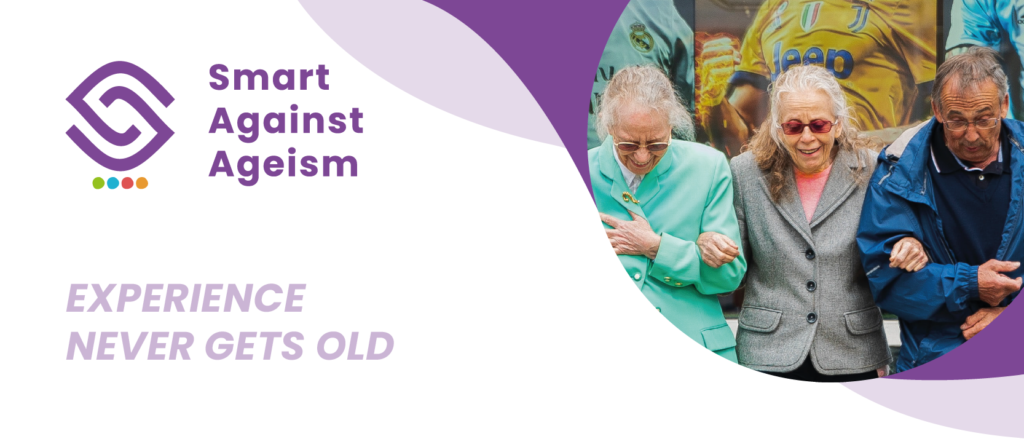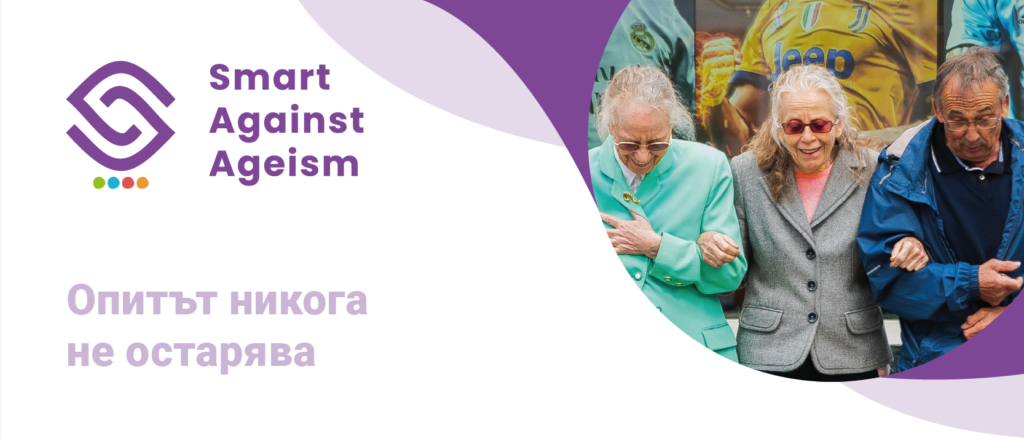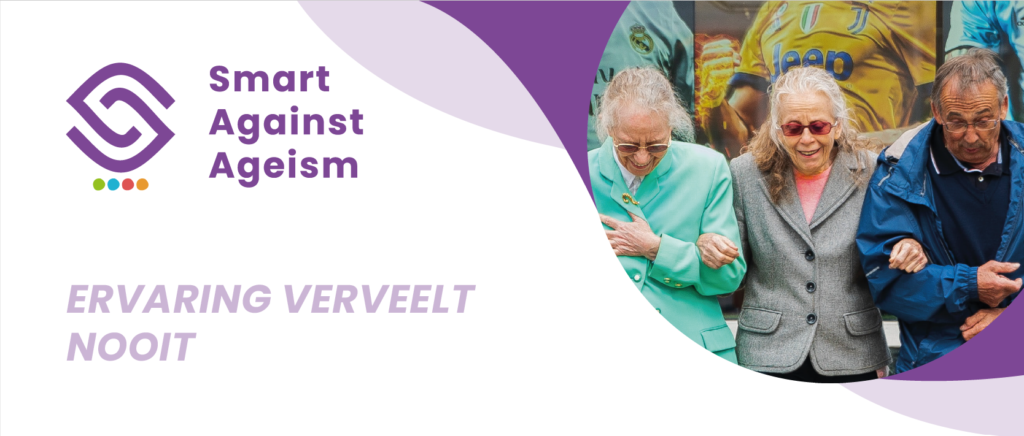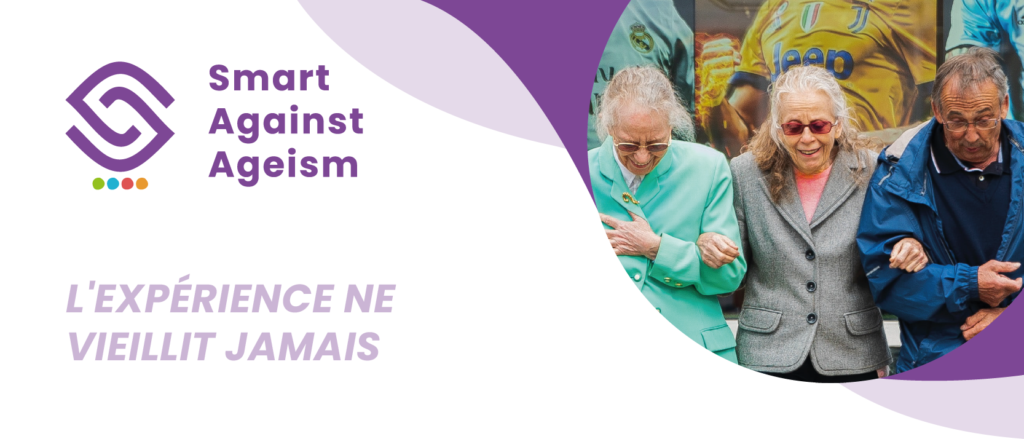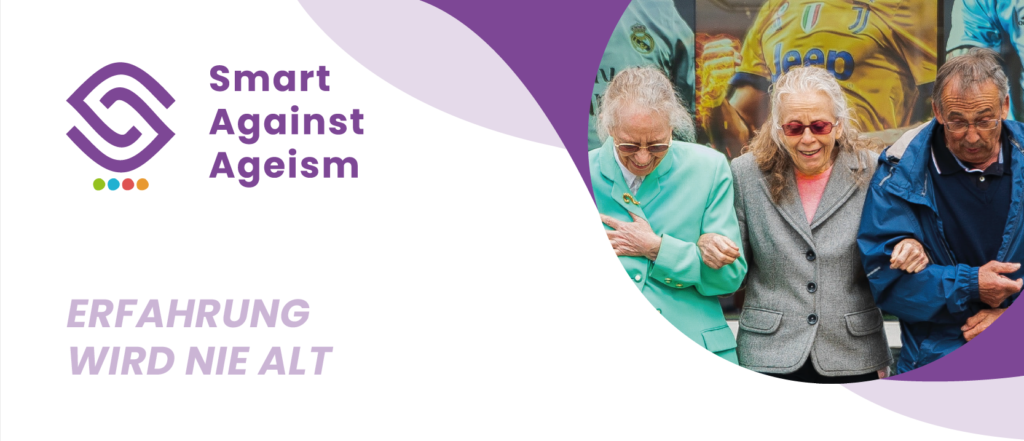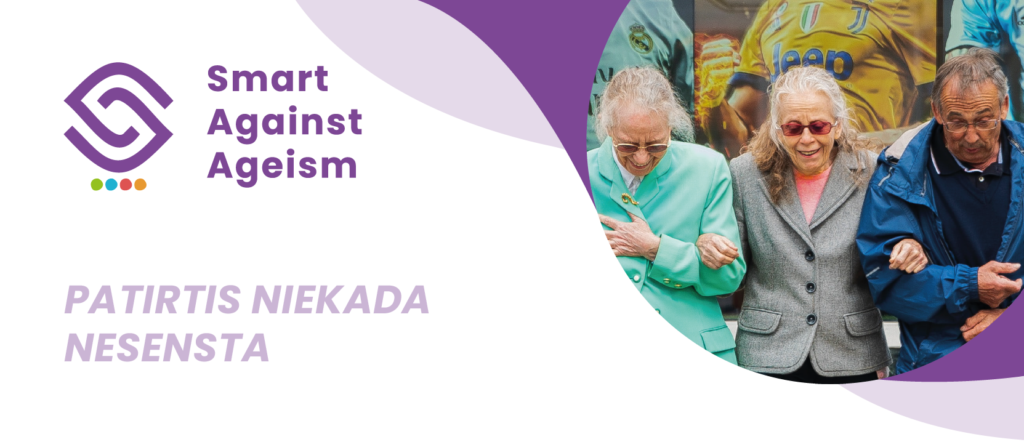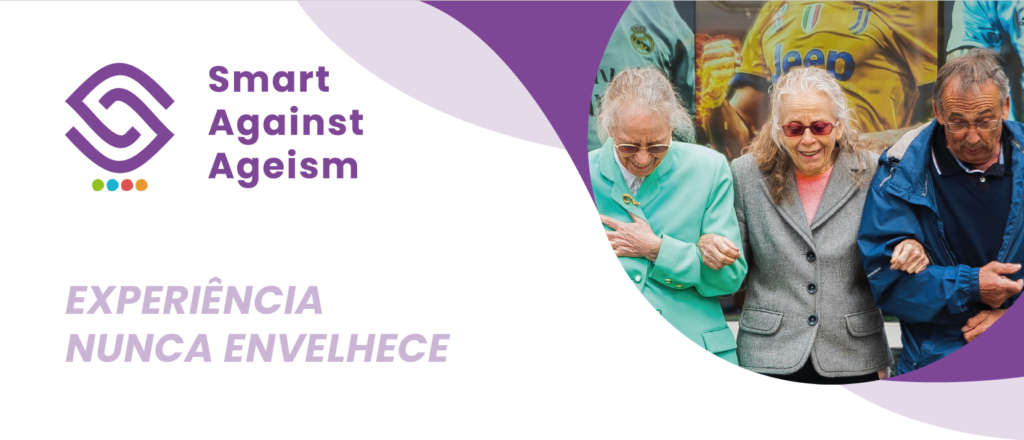Negative stereotypes, prejudices and discrimination based on age are known as “ageism”, which has been shown to cause cardiovascular stress, lowered levels of self-efficacy and decreased productivity. Across the EU, certain practices still reflect ageist prejudices and deprioritise, disregard, or even exclude older adults.
Our newest learning offer Smart Against Ageism (SAA) focuses on fighting ageism!
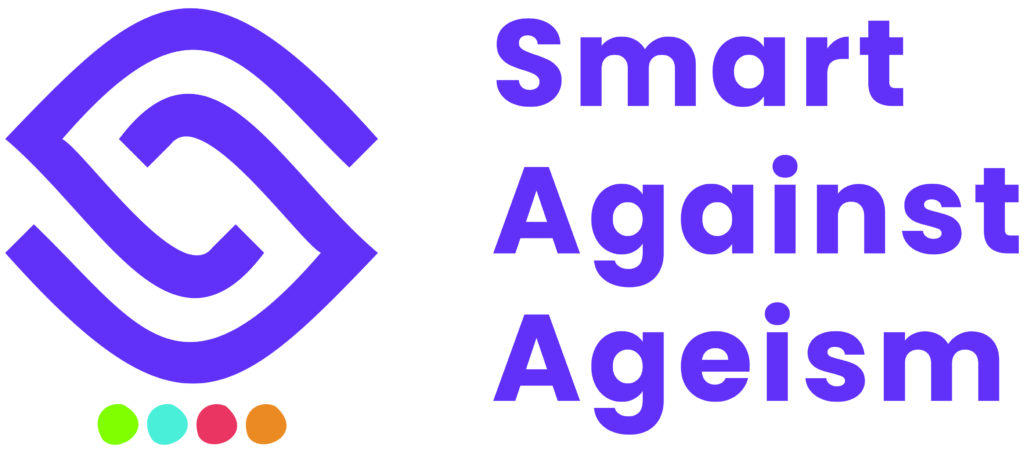
SAA | Smart Against Ageism is a learning offer to raise knowledge against ageism, aiming to contribute to developing empathy, tolerance and civil society skills.
An interactive learning platform with a learning game, a compendium, a trainer toolkit and policy recommendations for a more inclusive society are made available for informal and non-formal learning free of charge.
Our consortium joins organisations from Germany, Portugal, Belgium, Lithuania, Bulgaria and The Netherlands to develop the learning offer from January 2022 to June 2024!
The SAA project’s brochure is available in different languages:
Funded by the European Union. Views and opinions expressed are however those of the author(s) only and do not necessarily reflect those of the European Union or the European Education and Culture Executive Agency (EACEA). Neither the European Union nor EACEA can be held responsible for them.
Objectives
The overall objective of the SAA project is to strengthen the competencies of volunteers and staff of different professions in social and healthcare organisations, older adults themselves, and the broad public in becoming aware of the pervasiveness of ageism in all spheres of society.
Those who know and respect the rules for debates on critical topics can confidently advocate for change. Knowledge about ageism and familiarity with strategies to tackle these phenomena open up the opportunity to work for more equality and social inclusion.
In this context, education must address topics under discussion, help identify stigmatising situations, and assess their impact. Responses to counter-ageism will promote critical thinking and encourage learners to develop their empathy and acceptance of human diversity.
Target groups
The interactive learning platform addresses diverse target groups among others: volunteers, staff and decision-makers in social and healthcare, but also intends to attract persons not inclined to participate in formal or non-formal adult education offers.



